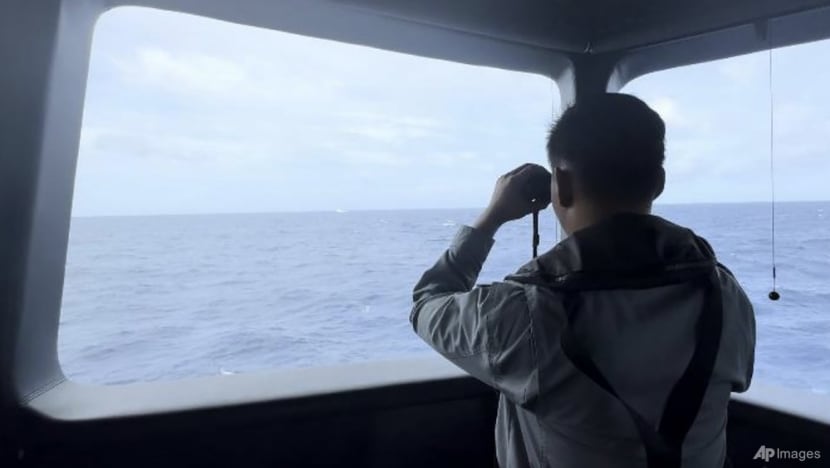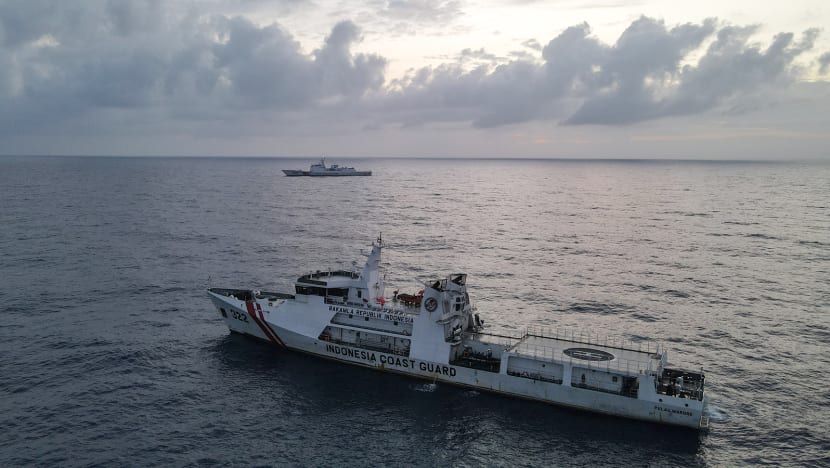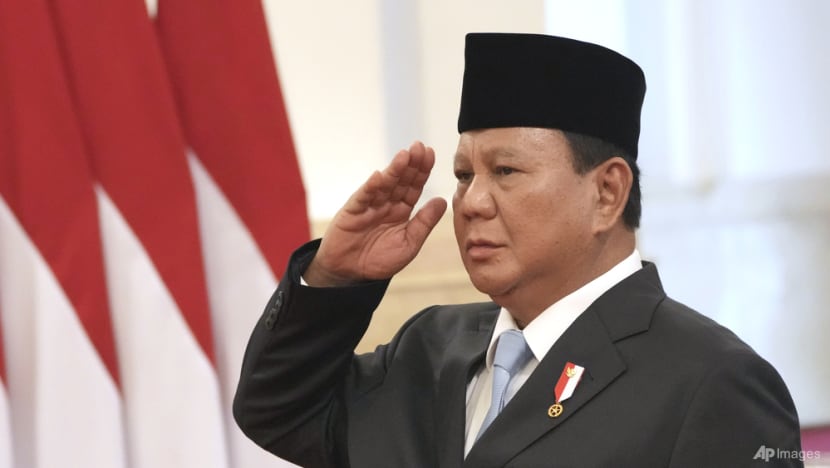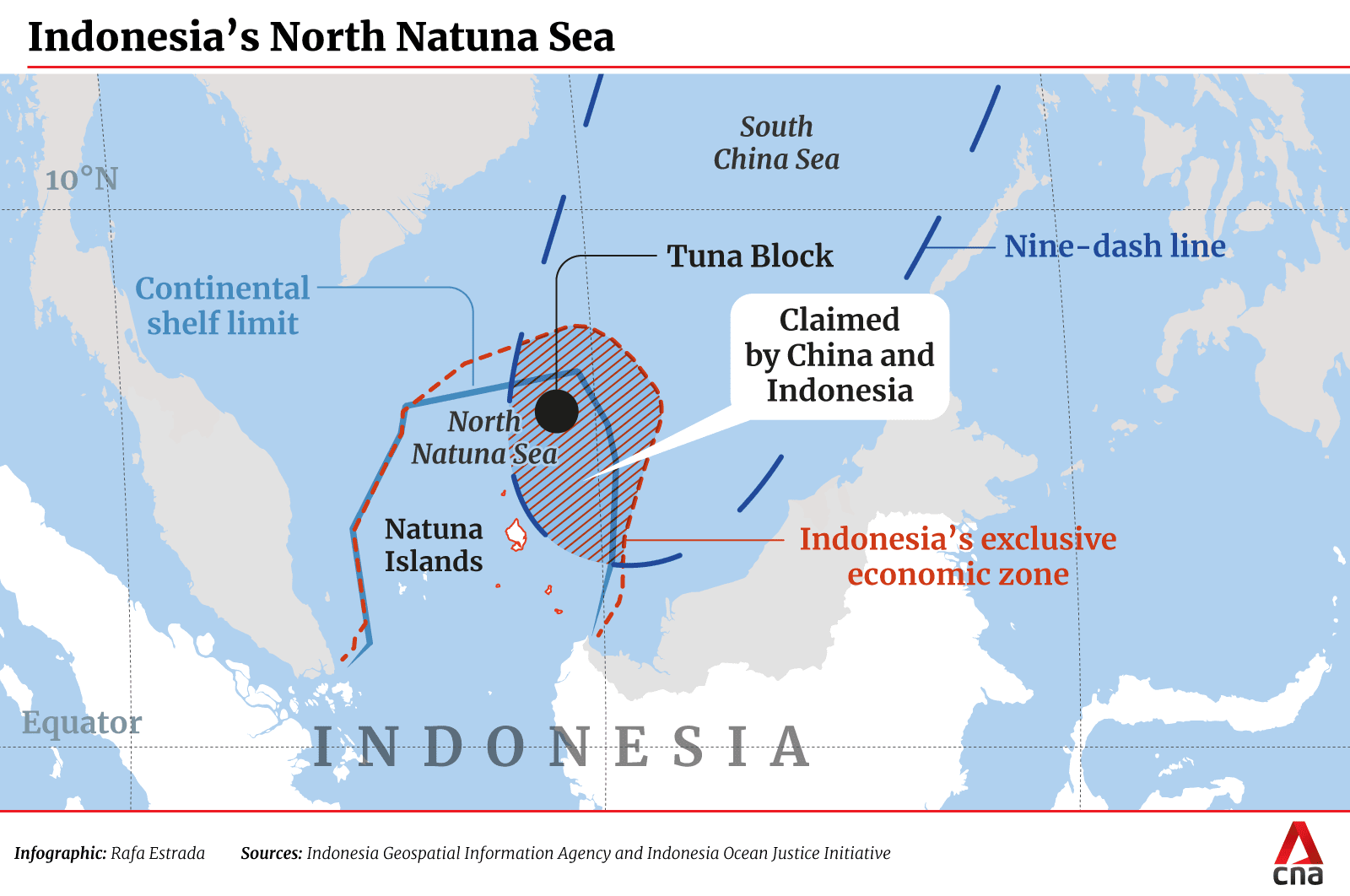Chinese vessel in Natuna: Indonesia’s response ‘shows resolve’ by new Prabowo government without harming ties, say analysts
Indonesia and China will probably settle into more predictable interactions once they are more certain of each other’s positions, says an analyst.


This audio is generated by an AI tool.
SINGAPORE: Indonesia’s handling of two incidents this week involving a Chinese coast guard vessel in the contested North Natuna Sea shows Southeast Asia’s largest economy wants to make its voice heard without unduly raising tensions, say analysts.
They add that the two appearances of the Chinese vessel this week in the contested waters are a test by Beijing of the new Prabowo Subianto government.
Indonesia’s Maritime Security Agency, or Bakamla, posted a video of its response to the incident on its Youtube channel on Oct 23, saying it had “expelled” the China Coast Guard vessel 5402.
The ship was "disturbing the activity of a survey" being conducted by Indonesia’s state-owned oil company Pertamina, the agency said in a statement the following day.
China’s “nine-dash line” claiming most of the South China Sea overlaps with Indonesia’s exclusive economic zone (EEZ) near the oil- and gas-rich Natuna Islands.
While Chinese coast guard vessels have been spotted numerous times over the years in the North Natuna Sea, located at the southern edge of the South China Sea, the most recent incident came just days after Mr Prabowo took over from Mr Joko Widodo on Oct 20, observers said.

TEST OF RESOLVE
China was potentially trying to understand how “tolerant” the new Indonesian administration would be towards its grey-zone operations and if the new administration might “bend backwards to these tactics”, said Mr Ridzwan Rahmat, principal defence analyst at global intelligence company Jane’s. Grey-zone operations refer to activities that stop short of war.
In 2020, a few months after Mr Widodo started his second term, a Chinese coast guard vessel and fishing boats entered the Natuna waters, prompting Indonesia to deploy fighter jets and warships in what was regarded as a diplomatic stand-off, said Mr Ridzwan.
Mr Widodo even made visits to the island in a show of Indonesia’s sovereignty.
However, in recent years, both countries have been handling their differences over the waters in a “fairly low-key manner”, said political scientist Chong Ja Ian of the National University of Singapore.
The incidents this week can, thus, be read as a test of resolve by Beijing as well as the new Prabowo administration’s “desire to demonstrate resolve”, he said.
“The two sides will probably settle into more predictable interactions once they are more certain of each other’s positions,” Associate Professor Chong added.
Related:
Bakamla’s release of a video of the incident was also picked up by a researcher as “a departure from quiet diplomacy” and how Mr Prabowo’s approach could differ from Mr Widodo’s.
“It may be a form of assertive transparency, akin to efforts by the Philippines, regarding the waters around the Natunas,” wrote Dr Abdul Rahman Yaacob, a research fellow in the Southeast Asia Program at the Lowy Institute, in an article for Australian think tank’s website The Interpreter on Friday (Oct 25).
REMINDER TO BEEF UP MARITIME SECURITY SYSTEMS
But Dr Abdul Rahman, as well as the experts who spoke to CNA, do not think ties between Indonesia and China will sour because of this week’s incidents.
“Prabowo seems to be demonstrating that Indonesia can be a friend to China but will also stand up to Beijing if necessary,” wrote Dr Abdul Rahman.
Indonesia’s new defence minister Sjafrie Sjamsoeddin met Chinese Ambassador to Indonesia Wang Lutong to discuss defence cooperation on Thursday (Oct 24), observers noted. The meeting, however, did not touch on maritime disputes.
Given his military background, Mr Prabowo will likely take a more pragmatic approach as compared to his predecessor in making large-scale displays of military might, added Mr Ridzwan.
“Given his credentials as an ex-military brass, Mr Prabowo is more in tune with the realities and demanding nature of the logistics required for sustained military operations and patrols, especially in a relatively remote area like the Natuna Islands cluster,” he said.

As such, he expects Mr Prabowo to be deploying more “politically less sensitive large white hulls” like Bakamla and Indonesia Sea and Coast Guard boats, as compared to grey hulls belonging to the Indonesian Navy.
“This is to send a message that Indonesia does not want to fight but remains cognisant of what goes on within its territorial waters and the EEZ,” Mr Ridzwan added. The EEZ is the zone within 200 nautical miles of the coast of a state, over which it has exclusive rights regarding exploration and use of marine resources.
International relations expert Yohanes Sulaiman of Jenderal Achmad Yani University in West Java said the recent maritime dispute will not significantly affect China-Indonesia relations in the short term. This is especially with Indonesia added as a partner country to BRICS, a bloc in which China holds considerable influence, on Thursday (Oct 24).
“I don’t think he has already decided to push a more aggressive posture against China,” Associate Professor Yohanes said. In power for only five days, Mr Prabowo is likely preoccupied with various domestic priorities, he said.
Indonesia joining BRICS as a partner country could also be perceived as Mr Prabowo wanting to “maintain the status quo”.
“He needs to make a statement, one that is critical of China’s action but also trying to calm the tension, knowing that he needs China to fulfil his economic agenda,” said Mr Radityo Dharmaputra, a lecturer from Indonesia’s Airlangga University.
Mr Prabowo’s first foreign trip as president-elect was to China, which has become Indonesia's top trading partner. While Indonesia’s natural resources such as coal and nickel help to power the Chinese economy, China has also invested in Indonesian infrastructure and other projects such as the Jakarta-Bandung high-speed railway.

Whether a test or otherwise, the incident this week serves as a reminder to Mr Prabowo’s government to enhance Indonesia’s maritime security system, said Mr Imam Prakoso, a senior analyst at the Indonesia Ocean Justice Initiative, a Jakarta-based think tank and policy advocacy group to achieve sustainable ocean governance.
The incursions this week are a repeat of what happened at the same location in late 2021, he said. At the time, China responded to Indonesia's oil and gas development by sending the China Coast Guard, warships and its advanced seismic research vessel Haiyang Dizhi 10. Chinese and Indonesian ships shadowed each other around the oil and gas block over the next few months.
“Indonesia must significantly improve its maritime security systems, including through diplomacy with China,” said Mr Imam.
“It is okay for Indonesia to continue using no-megaphone diplomacy if the government believes it is effective, but maritime security systems must be improved in terms of coordination and robustness in order to maintain presence in the North Natuna Sea, particularly in hotspots that overlap with China's claims,” he said.
















